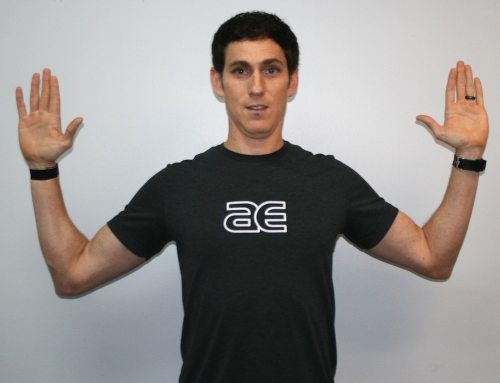Can Exercise Help Beat Cancer?
By David Elstein
Little data currently exist to guide diet and exercise recommendations for cancer patients and survivors, according to a report from the American Society of Clinical Oncology. While the benefits of exercise on other diseases have been studied for years, there have been significantly fewer research studies on the role or impact of exercise following a diagnosis of cancer.
Duke Cancer Institute scientist Lee Jones, PhD, is changing that. Jones is a recognized leader in a field of study known as ‘exercise oncology’ which seeks to understand the effects of exercise on patients with cancer. Jones conducts studies on a variety of different cancer types including breast, prostate, lung, colorectal, and brain as well as hematologic cancers such as leukemia.
In Jones’ laboratory, fitness is assessed using a symptom-limited cardiopulmonary exercise test to assess peak oxygen consumption. Over the past five years, Jones’ team has conducted over 1,000 of these tests in cancer patients. Jones found that peak energy consumption among women with early-stage breast cancer who have completed primary therapy is approximately 30% below that of age-matched sedentary women without a history of breast cancer.
According to Jones, this accelerated fitness decline is of central importance to the risk of several key survivorship issues such as fatigue, poor quality of life, depression, other chronic diseases (e.g., type II diabetes and cardiovascular), and even long-term survival. Indeed, in other recent data, Jones has found that fitness is a strong predictor of long-term survival in individuals with advanced breast cancer as well as early-stage and advanced stage lung cancer.
In recent years, several landmark observational studies have reported that cancer survivors reporting regular exercise have between 30% to 50% reductions in the risk of dying from cancer compared with survivors who are inactive.
Since his arrival at Duke in 2005, Jones has conducted several smaller studies to first examine the feasibility and safety of exercise training (predominantly aerobic training) in cancer survivors both during and following primary cancer therapy. “Our initial studies demonstrated that supervised exercise training is safe and well-tolerated by cancer survivors. This initial data gave us the green light to move ahead with larger studies to examine more sophisticated questions such as ‘what is most effective type or intensity of exercise?’ and ‘does exercise impact heart, lung, or muscle function in cancer survivors?”
To address these questions, Jones currently has five randomized trials underway, all funded by the National Institutes of Health, investigating the effects of different types of exercise modalities and intensities in prostate, breast, lung, and colorectal cancer survivors. His ongoing study in lung cancer patients is the first to examine whether aerobic training, resistance training, or the combination of both is the most effective at improving peak energy consumption. His study in breast cancer is the first to investigate the effects of vigorous aerobic training versus moderate aerobic training in cancer survivors. In all studies, in addition to looking at the effects of exercise on fitness, they also evaluate the effects of heart, lung, and muscle function as well as outcomes such as quality of life, sleep quality, fatigue, and cognitive function.
“The overall goal is not only to identify the optimal exercise prescription for cancer survivors but also match the right intervention with the right patient,” says Jones. “Our approach is toward personalized care—to gather data that will allow us to optimize the care for each individual patient.”
Jones has been investigating the effects of exercise in mouse models of breast and prostate cancer. “Our initial results have been fascinating,” says Jones. “We are finding that exercise, in some circumstances, dramatically slows tumor growth similar to that seen with traditional cancer therapies such as radiation or chemotherapy.” Jones stresses that this work is still in the early stages but suggests that the effects of exercise are far more complex than we often think.
Jones is an athlete himself and patients may see him jogging on Duke’s campus. He has completed the New York Marathon twice.
“Exercise is my life, both professionally and personally,” says Jones. “It helps me everyday, it’s as important as eating or sleeping, and I know that it can and will greatly helps others.”
# # #
<
David Elstein has been a writer with the Duke Cancer Institute for more than five years. Prior to this, he was a writer with the U.S. Department of Agriculture.






